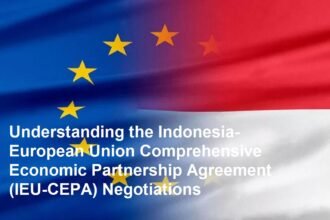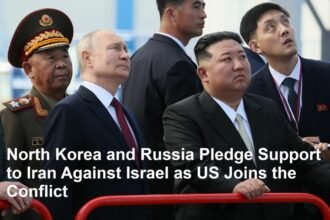Introduction
In June 2025, Indonesian President Prabowo Subianto made headlines by not attending the much-anticipated G7 Summit held in Canada. His absence prompted numerous speculations and questions regarding Indonesia’s foreign policy direction in a rapidly shifting global landscape. This article explores the clear reasons behind President Prabowo’s absence, highlighting Indonesia’s diplomatic priorities and reaffirming the nation’s longstanding commitment to a balanced international stance.
Scheduling Conflict with Prior Commitments
The primary and official reason for Prabowo Subianto’s absence at the G7 Summit was a significant scheduling conflict. Before receiving the invitation to the G7 Summit, President Prabowo had already committed to attending the St. Petersburg International Economic Forum in Russia. The forum, taking place concurrently with the G7 event, was a pivotal platform for Indonesia to engage economically with Russia and deepen bilateral ties. Additionally, he had a state visit planned to Singapore just days before the forum, making his travel itinerary exceptionally tight.
Strategic Engagements in Russia and Singapore
During his visit to Russia, President Prabowo met with Russian President Vladimir Putin and local business leaders, culminating in the signing of a strategic partnership agreement valued at $3.5 billion. This agreement signifies Indonesia’s effort to diversify its international partnerships and enhance economic cooperation with a global powerhouse outside the G7 structure.
Moreover, his state visit to Singapore on June 16 demonstrated Indonesia’s diplomatic prioritization of regional neighbors and strategic economic partners. These engagements underline Indonesia’s focus on nurturing multi-directional diplomatic and economic relations rather than aligning exclusively with any global bloc.
Addressing Geopolitical Speculations
Prabowo’s absence prompted speculation about Indonesia potentially shifting its geopolitical alliances towards Russia. However, Indonesian government spokespeople have firmly denied such interpretations. According to official statements, Indonesia continues to uphold its “free and active” foreign policy, a guiding principle that allows the country to maintain neutrality and flexibility in international relations.
Emphasizing Indonesia’s non-aligned posture, spokesperson Hasan Nasbi clarified that President Prabowo’s engagement in the St. Petersburg Forum was committed months in advance and reflects Indonesia’s diverse international partnerships rather than any strategic pivot.
Official Statements from Leadership
President Prabowo himself addressed the controversy, stating, “It is not because I do not respect the G7 Summit, but because I had already committed to the economic forum before they sent the invitation.” This comment underscores the importance of honoring prior diplomatic commitments, fundamental in maintaining trust and respect in international relations.
Implications for Indonesia’s Foreign Policy
While attending the G7 Summit is important symbolically and diplomatically, Indonesia’s leadership has shown a pragmatic approach to engagement with multiple global players. The decision to prioritize the St. Petersburg Forum and visits to Singapore reflects Indonesia’s strategic goal of balancing relations with powerful countries across different geopolitical spheres while focusing on national interests.
Indonesia’s approach avoids entangling alliances and emphasizes partnerships across the board—from Western economies represented in the G7 to emerging powers like Russia and close neighbors like Singapore.
Conclusion
President Prabowo Subianto’s absence from the 2025 G7 Summit in Canada was the result of prior commitments to important diplomatic engagements in Russia and Singapore. Far from signaling a major geopolitical shift, this decision highlights Indonesia’s consistent “free and active” foreign policy and its balanced efforts to engage with multiple global partners.
For observers and international partners, Indonesia’s approach signals a forward-looking, pragmatic diplomacy that values diversified economic cooperation and maintains independence in its international stance.








